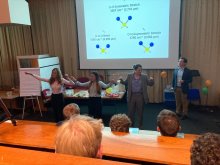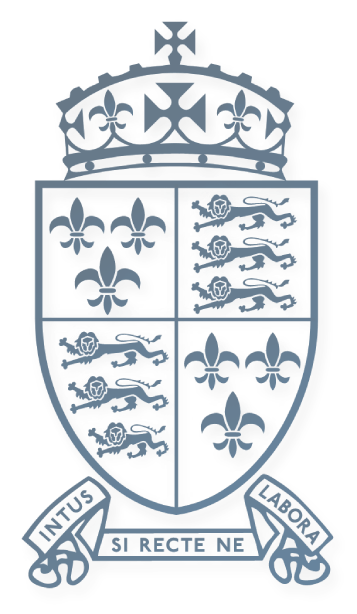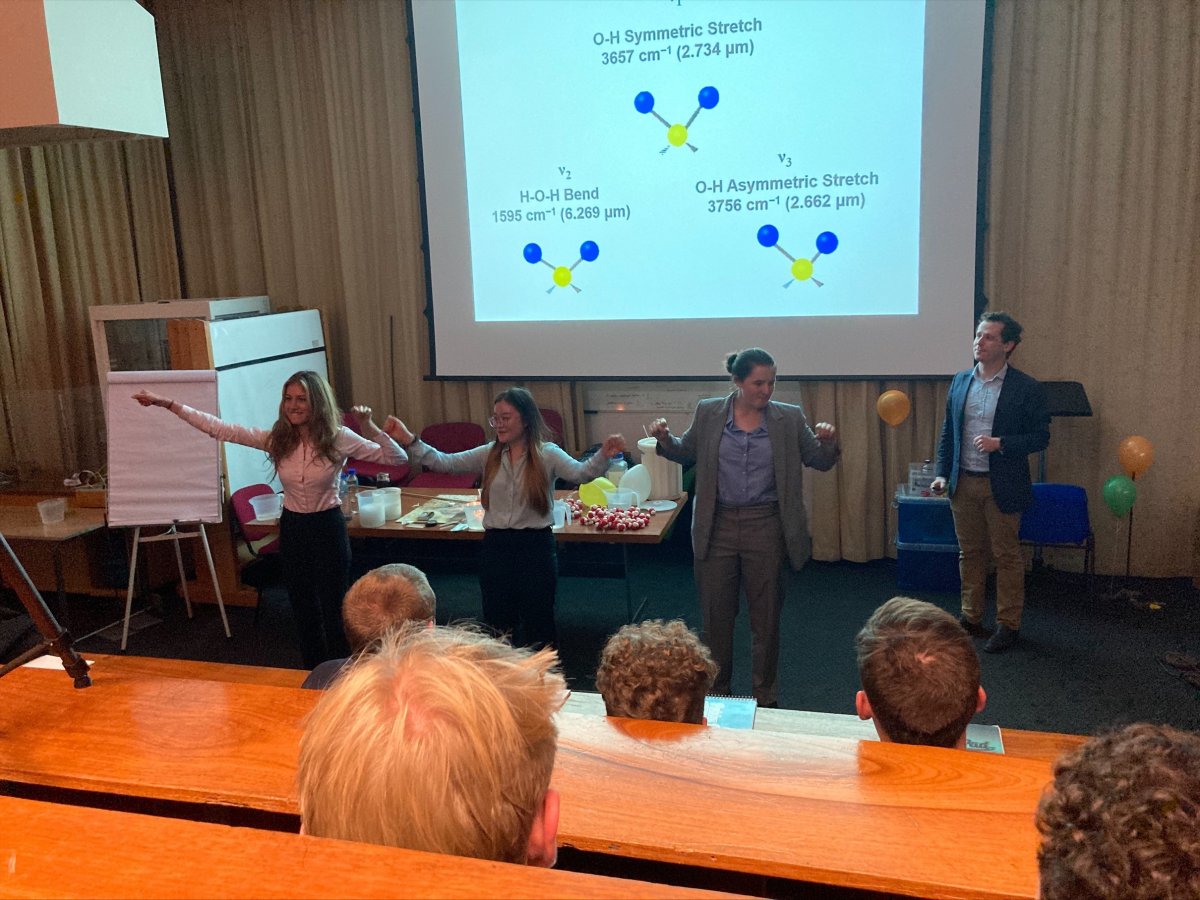Shrewsbury
Chemistry Lecture Ends with a Bang!


Lower Sixth Biology and Chemistry students, as well as a few from other year groups, enjoyed an inspiring talk on the “Curious Properties of Water” on Friday 17th September.
We were delighted to be able to welcome back Dr Ben Pilgrim to give this talk, last seen at Shrewsbury in 2018 and re-booked due to both the relevance of the topic and the fantastic presentation.
Starting with a look into the apparent ‘misnomers’ Hydrogen and Oxygen, the constituent elements in water, Dr Pilgrim went on to describe the 2D phase diagram of water and explain why ice floats. The audience were then bamboozled by sinking ice-cubes of ‘heavy water’ (D2O) during a summary of the effects of isotopes on both physical properties (density and colour) and the rates of chemical reactions – the kinetic isotope effect.
The students were not afraid of getting involved directly, with some volunteers verifying the concentration of homeopathic sugar solutions and others dancing to Bruno Mars in order to convey the reality of O-H bond stretching! One had the unenviable task of trying to build a single model of a cage while Dr Pilgrim synthesised the equivalent molecule in its billions towards the end of the talk!
As ever, the live demonstrations held the audience captive as we saw water starting a fire, 3D models changing state and, of course, a hydrogen-oxygen balloon to finish!
Dr Pilgrim currently works at the University of Nottingham, both teaching undergraduates and leading his own research group in the field of cage-like molecules. Prior to this he practised his research in research groups at Oxford University and as a tutor of Natural Sciences at Corpus Christi College, Cambridge. Ben also forms part of the UK Chemistry Olympiad mentor team and has a significant hand in the content of the paper each year.
A gathering of 16 students from the Lower and Upper Sixth who are interested in pursuing degrees in the chemical and natural sciences joined Dr Pilgrim and a handful of teaching staff for a meal after the lecture; this was popular due to his current and previous university tutoring experience as well as the relevance of his area of synthesis to applications such as medicine delivery.
The conversation was free-flowing and high-level, including questions from students about the use of computer simulation in predicting the stability and effects of certain cage-like molecules, molecule screening processes, and the methods by which chemists can identify the need for certain research before embarking upon a new project.
Many thanks again to Dr Pilgrim for taking the time to visit us in person and offer such an entertaining evening for all involved!
Mr Wray
Head of Science Outreach






















